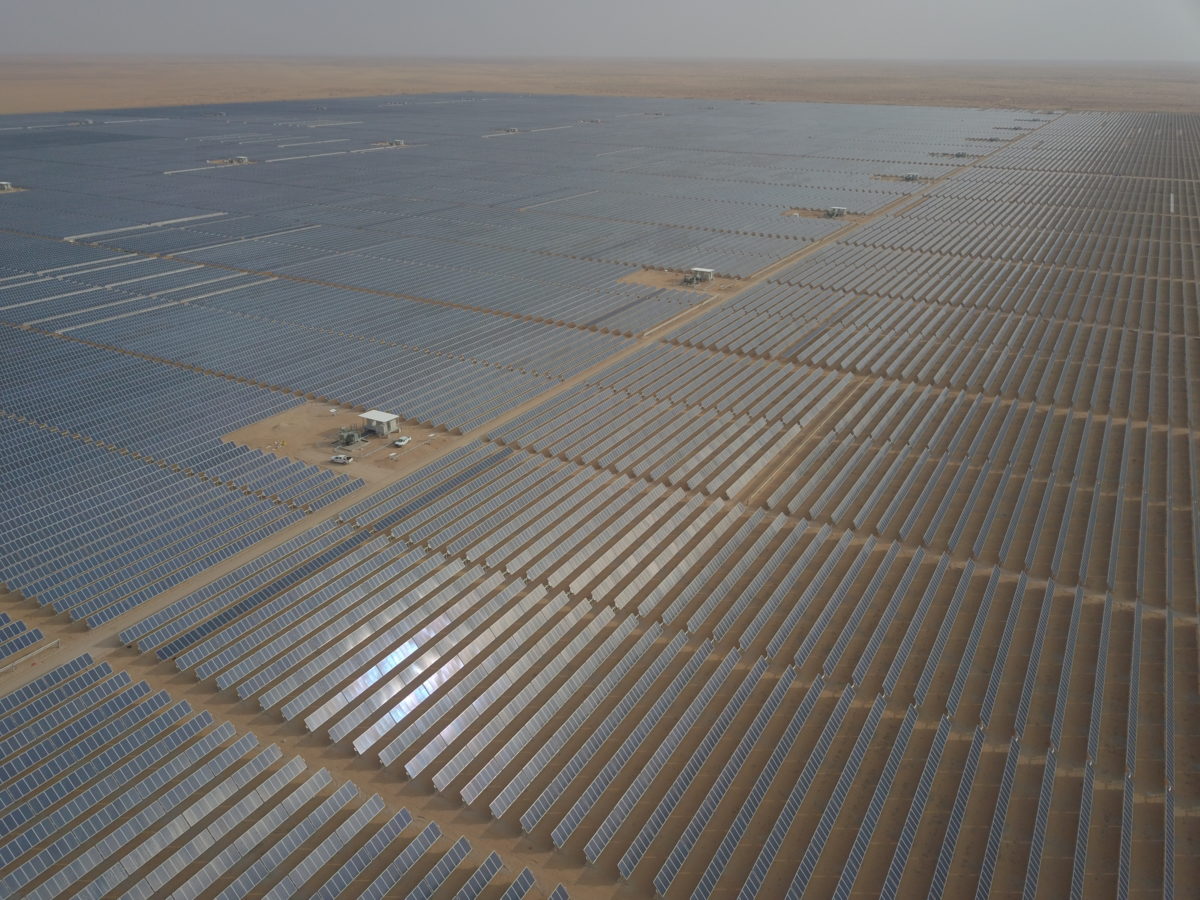Researchers at King Abdulaziz University have conducted a techno-economic analysis for utility-scale wind and solar plants in Saudi Arabia and have found that current tariffs make projects economically unviable.
The scientists conducted their analysis with the System Advisor Model (SAM), which is a performance and financial model designed to estimate the cost of energy for grid-connected power projects. They also used a Support Vector Machine (SVM) algorithm based on machine learning to assess global horizontal irradiation (GHI), wind speed, as well as other weather parameters at different locations throughout the country.
They also used the Weighted Linear Combination (WLC) method, which is a decision rule to derive composite maps using Geographic Information Systems (GIS), in addition to conducting a land suitability analysis. They said this facilitated the identification of four “optimal” locations for large-scale solar farms in Tabuk, Al Madinah, Makkah, and Riyadh provinces, as well as other suitable locations for wind power in Al Madinah, Makkah, Riyadh, and Eastern provinces.
“The analysis also identified one location in Al Jouf province suitable for hybrid systems combining solar PV and wind energy,” they said.
The researchers added that their assessment considered land use, topography, proximity to existing infrastructure, environmental constraints, capital costs, operation and maintenance (O&M) costs, energy production potential, grid integration considerations, and tilt angle optimization.
After completing their land suitability assessment, the researchers proceeded with a techno-economic analysis of the potential project considering annual energy output, capacity factor, energy yield, performance ratio, and levelized cost of energy (LCOE).
Their analysis included information from two existing facilities in Saudi Arabia – the 300 MW Sakaka solar plant and the 400 MW Dumat Al Jandal wind farm.
“The Sakaka solar PV plant operates under a 25-year PPA with an electricity price of $23.40/MWh, while the Dumat Al Jandal wind farm has a 20-year PPA with an electricity price of $21.30/MWh,” the researchers said, acknowledging that technical and financial details for the plants are not fully available.
The simulations showed that these PPA prices now allow the owners of the Sakaka and Dumat Al Jandal plants to achieve a positive net present value (NPV).
“The negative NPV results indicate that the projects are not economically viable at the current PPA prices,” the researchers said. “Increasing the PPA price could potentially enhance the profitability of these projects.”
They said that to achieve zero NPV values, the other identified sites for solar deployment should host projects requiring PPA prices ranging from $26.10/MWh to $29.30/MWh.
“Sensitivity analysis of PPA rates indicated that solar PV, wind energy, and hybrid solar PV-wind technologies are economically feasible in SA at PPA rates above $32.8/MWh, $26.1/MWh, and $50.6/MWh, respectively,” they concluded.
They introduced their findings in “Potentials and opportunities of solar PV and wind energy sources in Saudi Arabia: Land suitability, techno-socio-economic feasibility, and future variability,” which was recently published in Results in Engineering.
pv magazine and Solarabic have developed a new event in the Saudi energy landscape – SunRise Arabia Clean Energy Conference 2024 – that combines their long-term market expertise. The event will take place in Riyadh on Jan. 31. Two of the event's sessions will include a discussion about PPA prices and large-scale PV projects.
This content is protected by copyright and may not be reused. If you want to cooperate with us and would like to reuse some of our content, please contact: editors@pv-magazine.com.




3 comments
By submitting this form you agree to pv magazine using your data for the purposes of publishing your comment.
Your personal data will only be disclosed or otherwise transmitted to third parties for the purposes of spam filtering or if this is necessary for technical maintenance of the website. Any other transfer to third parties will not take place unless this is justified on the basis of applicable data protection regulations or if pv magazine is legally obliged to do so.
You may revoke this consent at any time with effect for the future, in which case your personal data will be deleted immediately. Otherwise, your data will be deleted if pv magazine has processed your request or the purpose of data storage is fulfilled.
Further information on data privacy can be found in our Data Protection Policy.